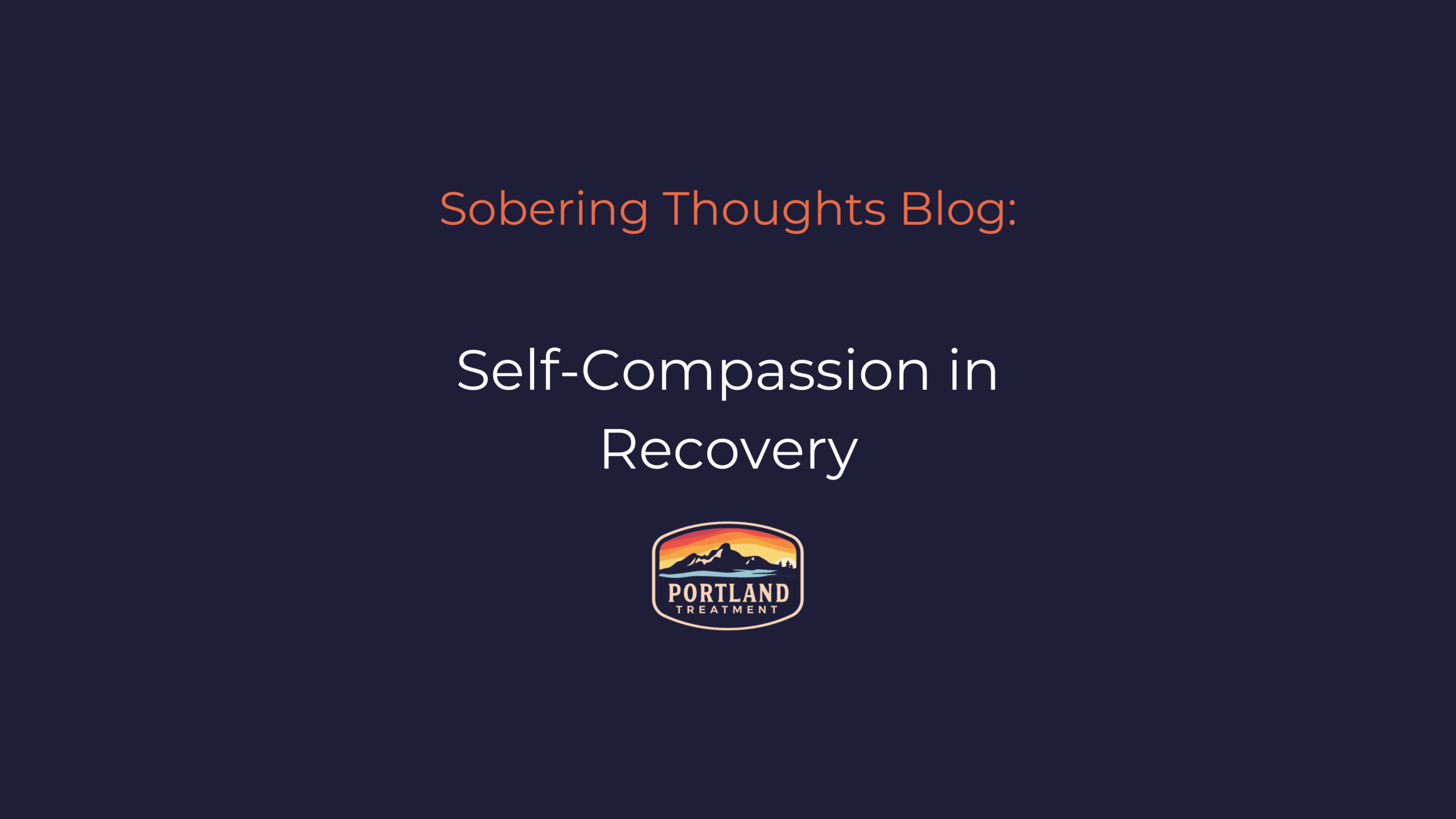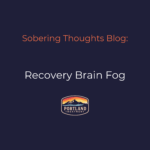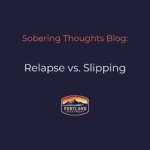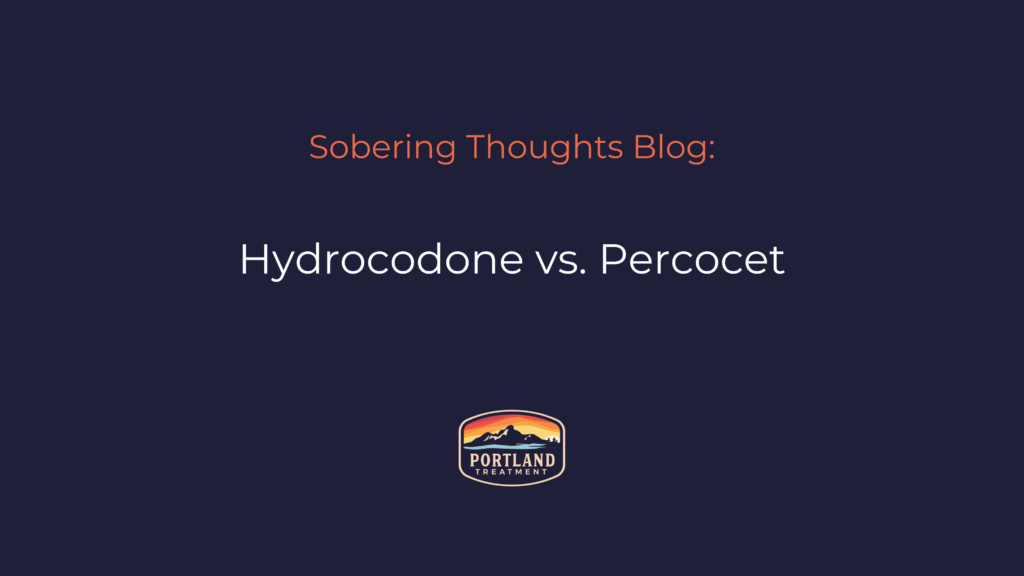Recovery isn’t only about abstaining from substances—it’s about healing how you relate to yourself. For many people, shame lingers long after detox. The inner critic can whisper, “You’ll never change,” even as life begins to rebuild. At Portland Treatment in Biddeford, Maine, we see this every day: shame keeps people trapped, while self-compassion opens the …
Recovery isn’t only about abstaining from substances—it’s about healing how you relate to yourself. For many people, shame lingers long after detox. The inner critic can whisper, “You’ll never change,” even as life begins to rebuild.
At Portland Treatment in Biddeford, Maine, we see this every day: shame keeps people trapped, while self-compassion opens the door to lasting recovery. Understanding the difference between guilt, shame, and self-compassion can transform the way you heal.
Why Shame Persists After Addiction
Shame is more than guilt. Guilt says, “I did something bad.” Shame says, “I am bad.”
Addiction often reinforces shame through broken trust, social isolation, and the stigma surrounding substance use. Over time, this internalized belief system wires the brain for self-criticism, fear, and avoidance—patterns that can trigger relapse.
Research shows that chronic shame increases cortisol and dysregulates the limbic system, making it harder to tolerate stress or connect with others (Kelly & Kushnir, 2022). When clients begin treatment, they’re often fighting both chemical withdrawal and emotional self-punishment.
The Science of Self-Compassion in Recovery
Self-compassion isn’t self-pity—it’s the ability to treat yourself with the same understanding you’d offer a loved one in pain. Kristin Neff’s research on self-compassion demonstrates measurable changes in emotional regulation and resilience when people learn this skill (Neff & Tirch, 2019).
In addiction recovery, this shift matters. Studies show that higher self-compassion predicts lower relapse risk and reduced internalized stigma (Chen, Van Zijp, & Suh, 2019). Compassion-based therapies like ACT (Acceptance and Commitment Therapy) and CFT (Compassion-Focused Therapy) help rewire the brain’s threat and soothing systems, calming the inner critic that fuels shame.
Healing the Inner Critic
At Portland Treatment, clients are guided through practical exercises to turn awareness into healing:
- Naming the Critic
By externalizing the inner voice of shame, clients learn it’s not their true self—just an old survival strategy. - Reframing Mistakes as Data
Instead of seeing relapse or setbacks as proof of failure, clinicians teach how to read them as information about triggers and unmet needs. - Grounding in Common Humanity
Remembering that everyone struggles reduces isolation and restores connection—the antidote to shame. - Practicing Mindful Self-Talk
Clients learn to replace automatic self-blame with gentle curiosity. This builds emotional safety and strengthens long-term motivation.
Compassion in Clinical Practice
Every therapeutic approach at Portland Treatment—from trauma-informed CBT to DBT and mindfulness work—is grounded in compassion. Our clinicians help clients:
- Identify shame-based beliefs and replace them with balanced thoughts
- Reconnect with the body through grounding and breathwork
- Develop emotional regulation tools that quiet self-criticism
- Rebuild trust in relationships and community
Because recovery isn’t about erasing the past—it’s about learning to meet it with empathy.
The Takeaway
Shame thrives in silence; compassion grows in connection. Healing addiction requires both the science of the brain and the language of the heart.
When you begin to speak to yourself with kindness, you create space for growth, accountability, and peace—three things no substance can provide.
At Portland Treatment in Biddeford, Maine, we help clients rediscover that compassion isn’t weakness. It’s the strongest foundation recovery can have.
Frequently Asked Questions
Why is shame so common in addiction recovery?
Shame often develops from broken trust, isolation, and stigma. It can become internalized, creating a negative self-image that drives self-destructive thoughts. Recovery programs like Portland Treatment address shame directly through therapy and group connection.
What’s the difference between guilt and shame in recovery?
Guilt relates to actions (“I did something bad”), while shame targets identity (“I am bad”). Guilt can motivate change; shame often keeps people stuck. Therapy helps clients transform shame into accountability and growth.
How does self-compassion help prevent relapse?
Research shows that people who practice self-compassion have better emotional regulation and lower relapse risk (Chen et al., 2019). Self-compassion reduces internalized stigma and builds resilience during triggers or setbacks.
Can therapy really change how I talk to myself?
Yes. Modalities like DBT, ACT, and Compassion-Focused Therapy (CFT) retrain emotional responses by rewiring thought patterns. Portland Treatment uses these evidence-based methods to teach clients mindful, balanced self-talk.
What are small ways to build self-compassion in recovery?
Start by noticing judgmental thoughts and replacing them with curiosity. Practice gratitude journaling, affirmations, or mindfulness check-ins. Over time, these habits strengthen new neural pathways that promote calm and confidence.
Sources
Addiction Center. (n.d.). Post-acute withdrawal syndrome (PAWS). AddictionCenter.com. Retrieved October 17, 2025, from https://www.addictioncenter.com/treatment/post-acute-withdrawal-syndrome-paws/
Chen, X., Van Zijp, A., & Suh, S. (2019). The role of self-compassion in the recovery from substance use disorders. LIDSEN Integrative Medicine, 4(2), 26. Retrieved from https://self-compassion.org/wp-content/uploads/2020/09/Chen2019.pdf
Kelly, A., & Kushnir, V. (2022). Effects of a trauma-informed mindful recovery program on self-compassion, shame, and internalized stigma in opioid use disorder. Frontiers in Psychology, 13, 780383. Retrieved from https://www.frontiersin.org/articles/10.3389/fpsyg.2022.780383/full
Neff, K. D., & Tirch, D. (2019). Acceptance and commitment therapy (ACT), compassion-focused therapy (CFT), and the role of self-compassion in clinical practice. Frontiers in Psychology. Retrieved from https://www.ncbi.nlm.nih.gov/pmc/articles/PMC11556665/
Victor, T. A., & Lang, A. J. (2022). Neurobiology and symptomatology of post-acute alcohol withdrawal. Frontiers in Psychiatry, 13, 9798382. Retrieved from https://www.ncbi.nlm.nih.gov/pmc/articles/PMC9798382/






